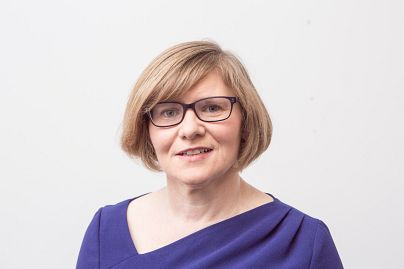After becoming the first country to approve marriage equality by referendum, the eyes of Europe and the world will again be on Ireland in the run up to this referendum on the Eighth Amendment, writes Orla O’Connor.
By Orla O’Connor, National Women’s Council of Ireland
A hundred years on from when Irish women got the vote, this International Women’s Day falls as the county is on the cusp of another vote — a referendum on the Eighth Amendment, which prohibits abortion in almost all circumstances.
Ireland is an outlier in Europe when it comes to our abortion laws. Article 40.3.3 of the Irish Constitution, or the Eighth Amendment as it is more commonly referred to, was inserted into the Constitution following a referendum in 1983, and it is based on a belief that a woman’s egg, from the very moment it has been fertilised, is a human being and has an equal right to life as the pregnant woman or girl. This means that abortion is not allowed except when a woman’s life is at risk. This means that for a woman who is pregnant and her health is at risk, or where she is pregnant as a result of rape or has been diagnosed with a non-viable pregnancy, she cannot receive abortion care in Ireland.
The standard European approach to the lawfulness of abortion is to make access to abortion legal, at least in early pregnancy, either on a woman’s request without restriction as to reason or for reasons of distress, or on broad socioeconomic or psychological grounds. Moreover, in almost all these 40 countries, once the time-period for legal abortion on a woman’s request or on broad socioeconomic or psychological grounds ends, doctors can also legally perform abortion for one or more exceptional reasons also specified in laws or regulations.
This means that Ireland is one of only three EU member states that do not allow abortion either on a woman’s request or on broad socioeconomic or psychological grounds. Those are Ireland, Malta and Poland, in addition to the UK jurisdiction of Northern Ireland.
This is a pivotal time for Ireland. After many years of women being forced to travel to access abortion care, and numerous court cases, we have the possibility of removing the Eighth Amendment from the Constitution by referendum, expected to be held on May 25 this year, and a way forward that recognises the need for abortion care in Ireland. After becoming the first country to approve marriage equality by referendum, the eyes of Europe and the world will again be on Ireland, in the run up to this referendum on the Eighth Amendment.
From conversations the National Women’s Council of Ireland are having around Ireland, and from opinion polls, we know that there is a strong desire for change, and that people see the need for a more compassionate healthcare system for all women and girls. However, in Ireland as everywhere else, abortion can be a highly contested issue that can lead to emotionally charged and polarised debate. In the lead up to the referendum, this is why it is so important that we have conversations about reproductive healthcare, and that we face with openness and honesty the very complex issues around life decisions, fertility control and pregnancy care.
Today, the Government will bring the referendum before the Dail, the lower house of the Irish parliament. A policy paper due to be published this week will outline proposals to allow for a 12-week protected period where a woman can access abortion if she needs to in consultation with her doctor, and also allow for a protected period in later pregnancy where a woman can access an abortion on the grounds of health, and in cases of a non-viable pregnancy. This would bring Irish abortion laws broadly into line with the rest of Europe.
Abortion is a topic that is so influenced by what is going on in our own lives, and by our own experiences of fertility and pregnancy and family planning, but this International Women’s Day in Ireland, we will be having these very difficult conversations, to ensure that the May referendum makes a real difference to the lives of all women and girls here.
Orla O’Connor is Director of the National Women’s Council of Ireland (NWCI), Ireland’s largest women’s membership organisation.
The opinions expressed in View articles do not reflect those of Euronews.












